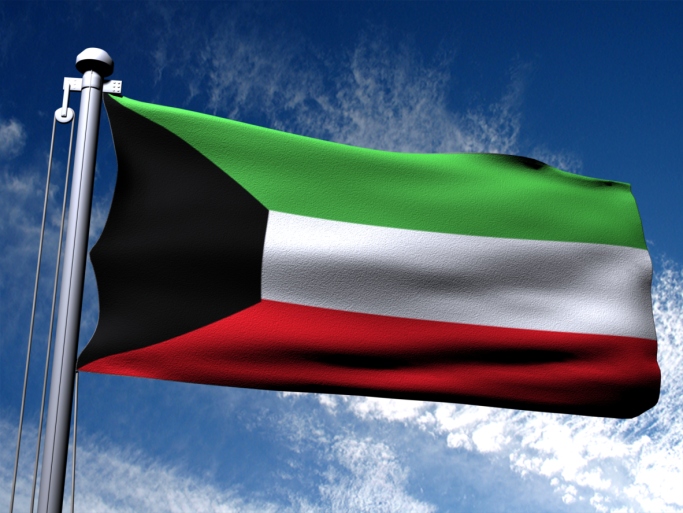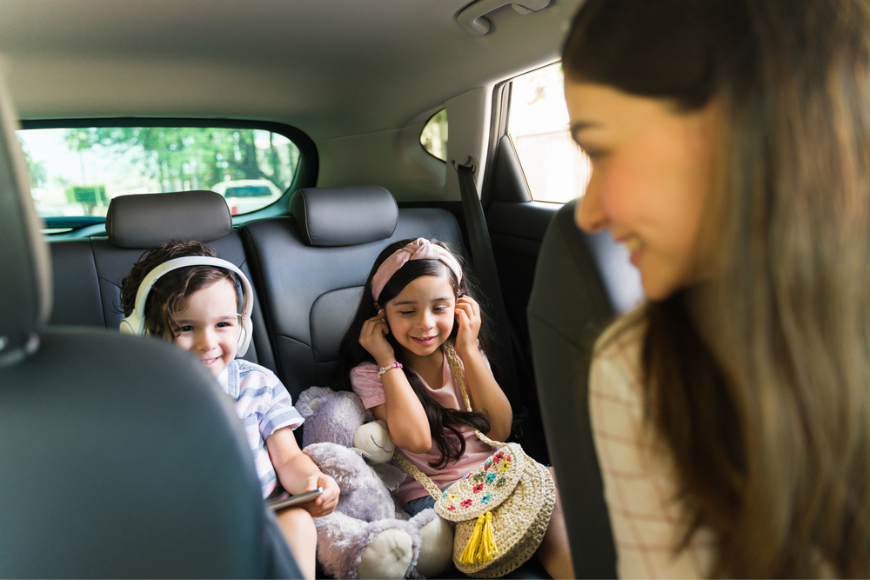We have had a closer look into the profile of Kuwait, got advice for expats from the British Embassy in Kuwait.
15 July 2013
| Last updated on 18 June 2017
 First Impressions
First Impressions
Blue sea, cloudless skies, beautiful long walks along the corniche, abundant cafes and restaurants to choose from, play areas for children, endless shopping opportunities and crazy driving! You will also find a great mix of nationalities, friendly people, scorching temperatures and even perhaps some rain, occasionally, in the winter...
Overview
Kuwait has a population of 3.6 million, of which around 1 million are Kuwaitis. Arabic is the official language although English is spoken in most places. The religion here is Muslim and the expatriate workforce is mainly from Muslim regions.
The Kuwaiti Dinar (KD) is the local currency and is the highest value currency in the world. The KD is linked to the dollar and at present exchange rates = $3.51 or 2.30 GBP (April 2013).
Kuwait has an elected parliament of 50 members, known as the National Assembly or Majlis Al Umma. The Emir is the Head of State and appoints the government, generally from members of the ruling family.
History
The State of Kuwait is a sovereign Arab state situated in the north-east of the Arabian Peninsula in Western Asia. It is bordered by Saudi Arabia to the south at Khafji, and Iraq to the north at Basra. It lies on the north-western shore of the Arabian Gulf. The name Kuwait is derived from the Arabic akwāt, the plural of kūt, meaning a fortress built near water. The Emirate covers an area of 17,820 square kilometers and has a population of about 3.6 million.
Historically, the region was the site of Characene, a major Parthian port for trade between Mesopotamia and India. The Bani Utbah tribe were the first permanent Arab settlers in the region, and laid the foundation of the modern emirate. By the 19th century, Kuwait came under the influence of the Ottoman Empire, and after World War I, it emerged as an independent sheikhdom under the protection of the British Empire. Kuwait's large oil fields were discovered in the late 1930s.
After Kuwait gained independence from the United Kingdom in 1961, the state's oil industry saw unprecedented economic growth. In 1990, Kuwait was invaded and annexed by neighboring Iraq. The seven month-long Iraqi occupation came to an end after a direct military intervention by United States-led forces. Around 773 Kuwaiti oil wells were set ablaze by the retreating Iraqi army resulting in a major environmental and economic catastrophe. Kuwait's infrastructure was badly damaged during the war and had to be rebuilt.
Advice From The British Embassy On Life In Kuwait
Overview
Kuwait is built on generations of Islamic traditions which are rooted firmly in its culture and tribal heritage. These traditions have been passed down from generation to generation and form the cornerstone of everyday life for Kuwaiti family.
The Kuwaitis are friendly people who show tolerance and an open-minded approach to visitors in their country; but their culture and values should always be respected. The culture and laws in Kuwait are designed to ensure that everyone is respectful of each other regardless of their faith and nationality. Visitors and residents alike should avoid types of improper conduct and behaviour which can otherwise lead to fines, imprisonment and deportation.
This guide sets out essential information for British nationals residing in Kuwait, including general traveller’s advice, travel bans, information in Kuwait.
Alcohol consumption in Kuwait
The consumption, importation and brewing of, and trafficking in liquor is strictly against the law. Drunken behaviour in public or driving under the influence of alcohol is a punishable offence, making the offender liable to a fine or imprisonment and/or deportation and withdrawal of the driving licence. Sentences of up to three months in prison are not uncommon.
Drugs are strictly forbidden, even a residual amount. Consuming or carrying drugs, even if you are transiting through the airport from one country to another, can result in an imprisonment and deportation. Buying or selling narcotics is considered a serious crime which can result in life imprisonment.
If you are using prescribed drugs it is advisable to carry a doctor’s note. If you are bringing prescription drugs into Kuwait you may need to seek prior agreement from the authorities. You should check with the nearest Kuwait Embassy or consulate before you travel.
Kuwait has a zero-tolerance policy towards drinking and driving. You can be charged and imprisoned if you are caught with even the smallest amount of alcohol in your system. Tailgating, speeding, racing, lane jumping and using a mobile phone while driving are all against the law. There are numerous speed cameras on the roads and motorways. Fines in Kuwait are heavy. If you are caught you may also face the possibility of having your car impounded. Wearing a seatbelt is mandatory. If you are caught committing this offence you could be subject to a fine.
Kuwait laws and customs
Sexual relationships outside of marriage are illegal, irrespective of any relationship you may have with your partner in the UK. Cohabiting, including in hotels, is also illegal. If you become pregnant outside of marriage, both you and your partner face the possibility of imprisonment. There are also legal ramifications when registering the birth with the local authorities.
Dancing is allowed in the privacy of your home, but dancing in public is classed as indecent and provocative.
Sexual harassment or randomly addressing women in public, or taking their photos without permission, is strictly frowned upon.
Offensive language, spitting and aggressive behaviour (including hand gestures) are viewed very seriously and can result in imprisonment and deportation. This includes road rage.
Holding hands for married couples is tolerated but kissing and hugging are considered offences against public decency. Open displays of affection are generally not tolerated.
Working without the proper visa is illegal. You cannot partake in any kind of paid employment without first obtaining a work visa. If caught, you will face imprisonment.
Dress code in Kuwait
Kuwaiti dress conservatively in traditional dress and can be offended when people dress inappropriately or not in accordance with Islamic values.
In public places such as shopping malls, restaurants and parks, you are encouraged to dress appropriately. Clothing should not be transparent, indecently expose parts of the body or display offensive pictures or slogans. Be aware that if you enter one of these areas dressed inappropriately you may be asked to leave (most of the larger shopping malls display signs warning respectable clothing should be worn). Any form of nudity is strictly forbidden, including topless sunbathing.
Respect for religion in Kuwait
Islamic religion values are greatly respected in Kuwait. Showing any disrespect towards religious beliefs or practices is considered deeply offensive and very likely to result in a heavy fine and/or imprisonment. Other religions are respected and can be followed by the expatriate community.
Follow a few simple rules of respect
Muslims pray five times a day. You will notice that the mosques call people to pray through a speaker system. At this time you will also notice public music is turned off as Muslims perform their daily prayers
be aware that drivers who are not close to a mosque, may stop at a convenient lay-by to pray privately
during the holy month of Ramadan, Muslims fast from dawn to sunset. Throughout this month, eating, drinking, smoking, playing loud music and dancing in public places during daylight hours are strictly forbidden and punishable by law, including for non-Muslims
every evening during Ramadan, Muslims celebrate the breaking of their fast with an evening meal called Iftar. You will find many hotels and restaurants throughout Kuwait who provide Iftar buffets
Personal security in Kuwait
Be aware of security and take sensible precautions
Leave your jewellery and valuables at home if you can. Only carry as much money as you need for the day. Leave the rest, and at least one credit card, in the hotel safe if one is available
Keep copies of your passport, insurance details and other important travel documents separate from the originals. It is useful to always have some form of identity on you, such as a driving licence or a photocopy of your passport
Stay aware of what is going on around you and keep away from situations where you do not feel comfortable
Find out from your guidebook or tour guide about any local scams
Keep up to date with local and regional events in the media
Don’t take risks on holidays that you wouldn’t take at home. If a situation looks dangerous, it probably is
Travel bans in Kuwait
Travel bans are legal prohibitions the Kuwaiti government imposes to prevent persons involved in disputes from departing the country. They can be the result of any sort of civil or criminal dispute or immigration violation. They are not normally lifted until the matter at issue, ie, civil suit, criminal case or immigration violation is settled.
A travel ban can result from any number of causes. For example, civil courts in Kuwait can (and do) impose travel bans over financial disputes. Such disputes might include disputes between business partners, between borrowers and lenders, landlords and tenants. If a financial dispute is the basis of the travel ban, it may be possible to get the ban lifted by depositing a sum of money equal to the amount in dispute with the court.
The Kuwait Prosecutor’s office may also impose travel bans on individuals while it is conducting criminal investigations in order to prevent them from leaving the country. The Ministry of the Interior will also impose travel bans on those who violate their visa status by overstaying, working without authorization, etc. These bans will not usually be lifted until the case at issue is concluded. Persons who are travel-banned for immigration violations will sometimes also find themselves in deportation proceedings.
Persons who are involved in disputes or investigations can check whether travel bans exist by checking this Kuwaiti government website. By entering a Civil ID number a person can check whether there is a travel ban against an individual name. Since multiple Kuwaiti government agencies can impose travel bans, this data base is not exhaustive. Often travellers do not learn that they are travel-banned until they attempt to depart the country.
The Kuwaiti government will usually not lift a travel ban until the matter under dispute is resolved. If the resolution involves a financial penalty such as a fine, the process of getting the travel ban formally lifted can involve shuttling between various Kuwait government offices and courts to pay, obtain needed approvals, etc. Once the ban is lifted, the traveller is free to depart Kuwait.
Travellers can also be banned from entering Kuwait. This can happen for many of the same reasons as exit bans. They are a particular problem for those who have been in Kuwait previously and have not passed through Kuwaiti exit control upon their departure (for example, in the cases of persons who entered via commercial air but departed via military air). Such persons will show on immigration records as never having departed, ie visa overstays. When they attempt to enter the country again, they are frequently detained.
For further information, please contact the Kuwait Ministry of Interior on telephone: 00965 22433840.
Disclaimer
Please note that this information is provided as a guide only. Definitive information should be obtained from the Kuwaiti authorities.
To find out more about the British Embassy In Kuwait you can visit their website www.gov.uk/government/world/kuwait
British Embassy Kuwait Contact Details
British Embassy
Arabian Gulf Street
Dasman
Kuwait City
Kuwait
Email [email protected]
Telephone +965 2259 4320
Office hours: Sunday to Thursday, 7:30am to 2:30pm (GMT 4:30am to 11:30am)
The weekend in Kuwait is Friday and Saturday.
































































































